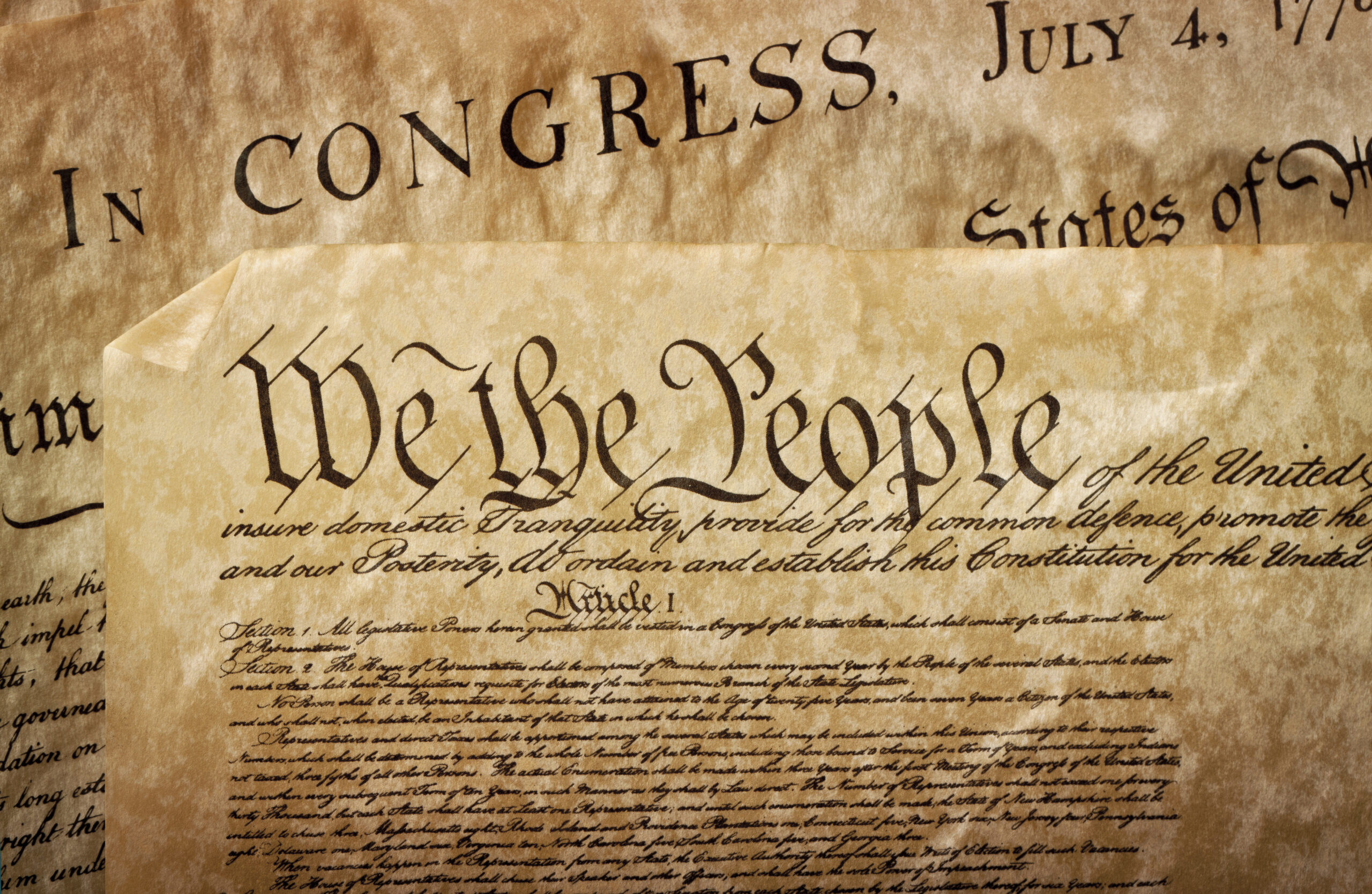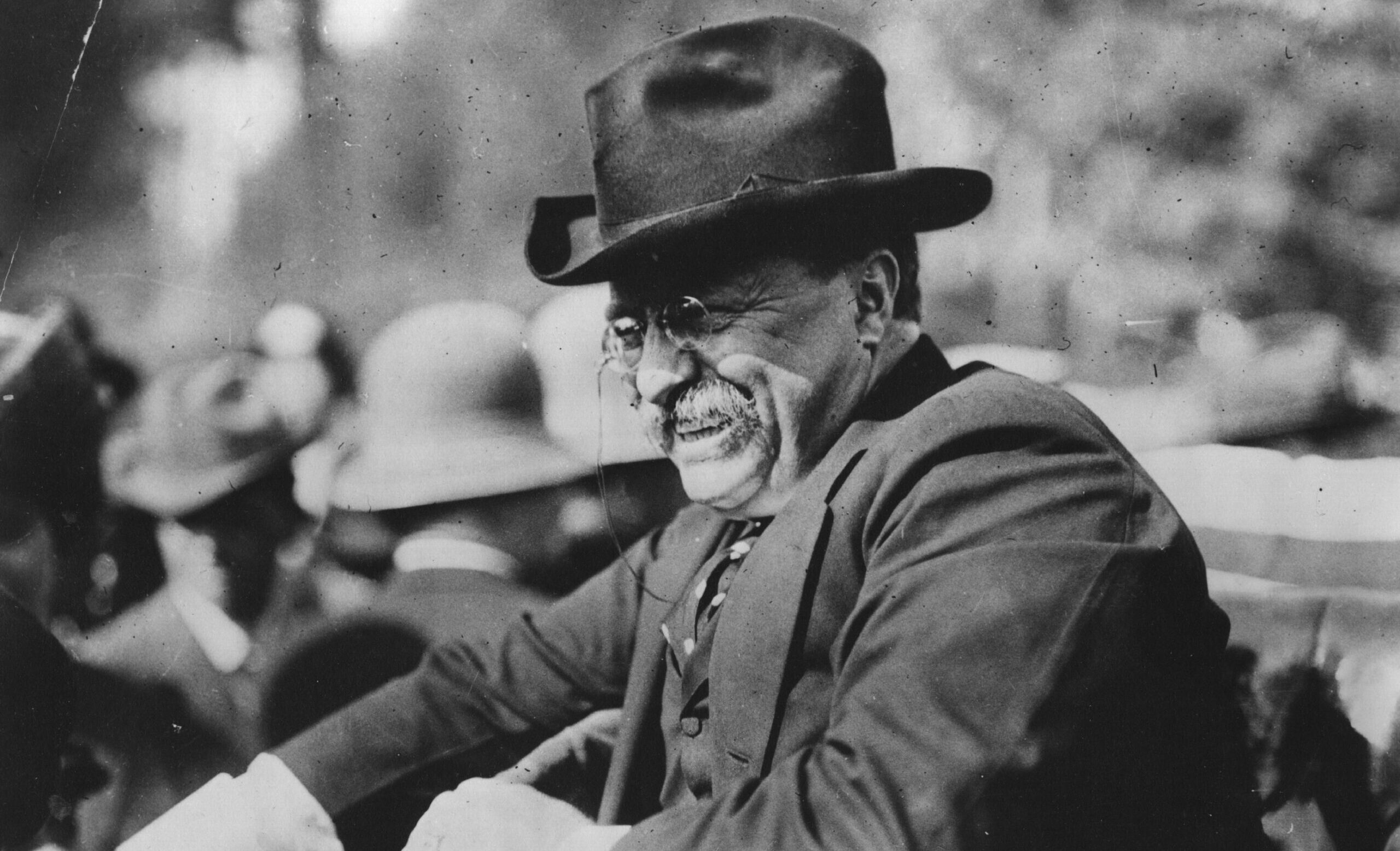Crisis of the Two Constitutions: The Rise, Decline, and Recovery of American Greatness
By Charles R. Kesler
(Encounter Books, 2021)
The consideration of whither our Constitution is tending, or more importantly the future of the American regime, makes Charles R. Kesler’s Crisis of the Two Constitutions a timely addition to our bookshelves. The prospects for a healthy outcome look grim. Aristotle noted that when a friendship is destroyed between competing interests in the body politic, violent conflict is not far behind. In our situation, an oligarchical element has ascended, and it is not interested in sharing power with fellow citizens.
Kesler provides a masterful account of how we arrived at this benighted place. Depending on how you perceive Donald Trump’s rise, though, the book could be read with some cause for optimism. Perhaps Trump was not the beginning of the end but the end of the beginning of renewal. After all, officially, in 2020 Trump came within about 40,000 properly distributed votes of being reelected. Close to half the country rejected the Left’s vision of the future.
This narrow division is why the Left attacks Republicans, conservatives, and Trump voters: from warnings that the military would eject Trump from the White House by force to the labeling of many Republicans as deplorables or insurrectionists. To hear Joseph Biden’s inaugural address, America is littered with white supremacists. It does not take a rocket scientist to understand about whom he is speaking. All these assertions are political flares that signal our decaying bonds.
Although he does not dwell on the present situation—the book is a reflection on the Constitution—Kesler understands we are not in a time of “normal politics … within an accepted political and constitutional order.” We are possibly, perhaps likely, outside that order. Not just academic argument but political action is necessary if we do not want to become vassals of the global oligarchy. That need for action was part of the appeal of Trump, who was the only figure to stand against globalism, whether in outsourcing to China or uncritically opening our borders.
This crisis has been a long time coming. Kesler knows that the “living Constitution”—the practical means for subverting the law and then dispensing with it—has led to a creeping form of tyranny. The Founders worried about a singular Caesar figure. But impersonal administrative agencies have instead filled the constitutional void.
In fact, as Kesler notes, the modern form of tyranny is not well recognized because modern education blinded the public from recognizing what is before their eyes. As Leo Strauss wrote in On Tyranny, the modern crisis culminated when the classical understanding of politics, whose handmaiden is prudence, was abandoned. That development has now sapped public confidence in the regime.
A people must have some understanding of their ends in order to pursue human happiness. The political problem of modernity is that we have abandoned the idea that reason can shed light on these ends. Those familiar with Kesler (and the Claremont School—Kesler is editor of the Claremont Review of Books) know it is the Declaration of Independence that speaks to the natural ends of man. The Constitution provided the prudential framework so that we might live according to nature. The Declaration sheds light on the law, giving it animation and purpose.
The slow decline of America accelerated under the spell of relativism. This development undermined not just the law but the ends of humanity itself. Capable academics like Kesler have demonstrated over the decades how the Founders stitched together the teachings of the ancients and moderns in the service of liberty. Yet we ought not forget the possibility that perhaps nothing could have been done to prevent our decline. Like Plato, Polybius speaks of the cycle of regimes. The decline from best to worst proceeds according to nature, not simply because of bad ideas or political mistakes.
In our circumstance, Polybius seems not too far from the mark. New generations arise that are not dedicated to the Founding. They begin to seek power for its own sake and to bribe the populace because they have no merit by which to acquire it on their own. Those most inclined to succumb to this temptation are the rich. When such rulers pursue their own interests with contempt for the people, we find conditions ripe for regime change.
Take the recent imbroglio over GameStop. When individual citizens purchased a stock they believed in, thus squeezing the hedge funds that were betting against it, the government stepped in to prevent their trades. This blatant exercise of power was meant to protect the portfolio of the wealthy and the powerful. Perhaps worse, this market manipulation further discredited the ruling elite.
Kesler observes that perpetuation of the regime must be inculcated in the “hearts and minds” of citizens. But when citizens are already corrupted, there is little hope of saving it. To explain this corruption, Kesler draws our attention to the progressive movement, which sought to replace nature as the guiding principle of American politics. The progressives argued that we needed a more democratic state, guided by a neologism in peaceful politics—the leader. Kesler contends rightly that this undermined the republican character of the Constitution.
The progressive project, however, also included an undemocratic element. The leader was to be assisted by an administrative state staffed by experts who at best fooled themselves into believing that they only had the public interest in mind. The people may be wrong or misconstrue what is in their best interest, as Publius conceded in The Federalist. But the progressive project effectively detached politics from the consent of the governed.
Ronald Reagan perceived this leftist advance and tried to stem it. But in the 1980s, politics were not ripe for an assault on the administrative state. We forget that Reagan staffed his White House with the insiders who made their peace with the postwar consensus, even if he had not. In fact, his own staff hid certain conservative publications from Reagan because his instincts were more decidedly American than those of our superfluous elites.
The failure to achieve a meaningful recovery of the regime in our recent past leads Kesler to conclude that conservatives—even Reagan himself—lacked the fortitude “to be founders.” The unstated lesson of the Nixon era compelled them to leave administrative institutions unchallenged. The reaction against President Nixon culminating in his impeachment was, as John Marini argued in Unmasking the Administrative State, a kind of coup against a popular Republican who wanted to recover our original regime from administrative rule. While we could make a case that Reagan set the conditions for Trump by cultivating the ground for subsequent attacks on those who rejected the consent of the governed, it was Nixon who drew first blood.
Yet neither man was up to the task, and the Republican Party all but abandoned persuasive arguments about schemes to undermine the regime. The public was none the wiser, because the legacy media never reported what deep staters were doing. As Marshall McLuhan pointed out, the media were literal state TV, engaged in “programming.”
None of this was completely understood by elite conservatives. Kesler’s excellent account of William F. Buckley’s role in the formation of electoral and intellectual conservatism may be read as a cautionary tale. National Review might have been beneficial at the time, but its influence was not lasting. It never really cultivated a deliberative discourse about the thing most needful for our regime: restoration rather than conservation.
In a thoughtful account of Samuel Huntington’s theory of “the Clash of Civilizations,” Kesler returns to the regime question. He argues that Huntington’s defense of Anglo-Protestant culture is unpersuasive. To flourish, America needs something deeper than attachment to religion or ethnicity.
But the rise of digital technology makes “tribal” attachments more appealing in unforeseen ways. The coincidence of the Left’s abandonment of humanity—choosing your own gender absent biological sex is but one example—and the emergence of digital communities dedicated to the great books shows how weak our shared connections have become. Such fragmented conditions propelled a person like Trump to center stage. They were the inevitable—we might even say natural—consequence of the abandonment of the Founders’ Constitution.
***
There is something wrong with conservatism, and there has been for decades. Modern conservatism stood for, or against, particular issues that stitched together a coalition. Its failure follows from its inability to make moral arguments that would bolster the Founding and remind us why we are conservative in the first place. Kesler appears ambivalent about the unconventionally conservative Trump, therefore. He contends that “America First” is an unfortunate phrase, presumably because of its perceived historical association.
Such associations shouldn’t discredit the phrase. Originally employed by Woodrow Wilson, the term received its poorest reception when the allegedly intolerant America First Committee opposed involvement in the Second World War. Whoever used it, though, the idea was admirable: Keep America out of foreign wars. Even if they avoided the term, Nixon, Reagan, and the Republican Party of Lincoln and Grant all embraced the principle of America First.
Kesler writes that Trump is no Caesar because he does not have the temperament or, as Cicero wrote, the “lust for mastery or domination.” Unlike Nixon, who accepted an election he believed to be stolen, Trump fights. He decided not to concede, nor to be present on the podium come Biden’s coronation day. The inauguration was a surreal spectacle that looked like a military occupation. The small crowd of elites surrounding Biden, facing an empty field only populated with flags, drove home the realization that our country had turned a corner.
Trump is more concerned with “magnificence” than with greatness of soul or magnanimity. Like Nixon and Reagan before him, he may not be a founder. Nevertheless, Trump, for all his shocking bluntness, is speaking exactly as he should for the times. As Kesler notes, conservatives have been playing defense for centuries. Trump speaks and acts in seemingly “radical” (read: offensive) ways because the times call for it. Even Cicero did the same thing in his day.
On the surface, the fact that Cicero and Trump had to speak in rather straightforward ways, no less than Harry Jaffa and Barry Goldwater did, does not bode well for recovery. The 2016 and 2020 elections should bring us hope, not despair, though, because roughly half the country understands the gravity of our crisis. Kesler might be too pessimistic about the successes of the Left. We are not at a “Progress or Return” moment, as Strauss eloquently considered. We are at the point of opportunity, which means Progress and Return.
Erik Root is a writer living in North Carolina.














